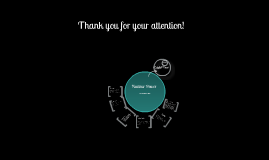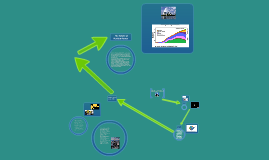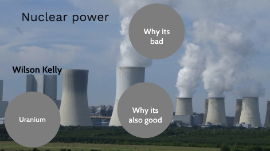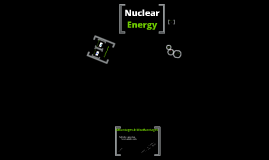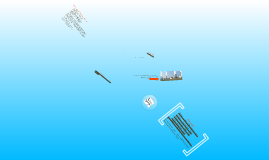Nuclear Power
Transcript: The Future of Nuclear Power Disadvantages to Nuclear Power In nuclear power plants, neutrons collide with uranium atoms, splitting them. This split releases neutrons from the uranium that in turn collide with other atoms, causing a chain reaction. This chain reaction is controlled with "control rods" that absorb neutrons. Fission releases energy that heats water to about 520 degrees F in the core of the plant. This hot water is then used to spin turbines that are connected to generators, which produce electricity. Because a strong commitment is needed to replace the lost capacity with energy efficiency and clean renewable generators, the US needs to find a place to store the wastes of the Uranium without putting the nation at risk. There has been talk of storing the waste at Yucca Mountain which will provide basically a storage room for the waste until it is gone. Nuclear energy will play a prominent role in our nations energy future because right now nuclear energy is 20% of our energy in the United States. We have learned from the mistakes in Japan and Chernobyl which will only help us improve the saftey at the nuclear power plants. The main advantage this type of power has over other methods is that it is a clean way to produce energy as it does not result in the emission of any of the poisonous gases like carbon dioxide, sulfur dioxide or nitrogen dioxide. One of the main benefits of nuclear power is that it is an extremely reliable source of power because most nuclear reactors have a life cycle of 40 years which can be easily extended further for 20 more years. The source of nuclear power is uranium and this is available in abundance in the crust of the Earth with major deposits being uncovered in Canada and Australia. Therefore since the source of nuclear power is readily available now and also for centuries to come, this form of power is virtually inexhaustible. How Nuclear Power Works Benefits of nuclear power High-level radioactive waste is very dangerous. It lasts for tens of thousands of years before decaying to safe levels. It is highly radioactive and is a major barrier to the expansion of nuclear power. Nuclear fuels are, physically, even rarer than fossil fuels. Fossil fuels at least are made on Earth, albeit over millions of years. Heavy elements like Uranium are only made as stars die, in supernovas. Our solar system actually formed from the remains of another star, at which point heavier elements were made. Essentially, once they're gone, they are well and truly gone. Nuclear Power The Chernobyl accident is the most serious accident in the history of the nuclear industry. Because of a basic human error of a combination of basic engineering deficiencies in the reactor and faulty actions of the operators. Because of this human error, 600000 people have been treated emergency, containment, cleaning, and recovery operations. This is a very specific reason of why nuclear power is dangerous, because one simple error can effect the world.







